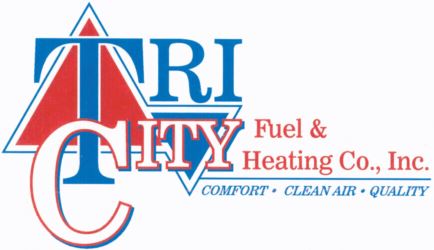
With ample maintenance, your air conditioner can run for 15 years or more. But even the most well-maintained air conditioner will need to be replaced down the road.
When you’re beginning to plan for air conditioning installation in West Columbia, we realize that the expense tops your list of questions. The silver lining is that getting a new air conditioner could be more affordable than you think it is, thanks to rebates, our special offers and financing for qualified customers. You’ll also enjoy enhanced energy efficiency, which will usually pay off over the years through lower electrical bills.
Here’s what to expect when you’re replacing your air conditioner.
The Best Time to Replace Your Air Conditioner
Knowing when to repair or replace your air conditioner may be tricky. Here’s what our professionals advise.
Replace
- Your air conditioner is older than 10 years old. While some may work longer, most air conditioners work for around 15 years with regular maintenance. We advise planning for air conditioning replacement near the 10-year age. Even if you install a new one when it’s only a decade old, the U.S. Department of Energy says this swap could save you 20-40% on cooling costs.
- You’ve skipped routine maintenance for a long time. Similar to a car, your cooling system has to have annual air conditioning maintenance. Not doing this crucial service can result in lower efficiency, more recurring repairs and even a shorter life span.
- Your air conditioner has to have frequent or expensive repairs. Needing air conditioning repair is frequently the outcome of not doing maintenance But as your air conditioner gets older it’s more likely to suffer a big breakdown. When repairs are higher than half the cost of a new air conditioner, it’s time to get a new one.
- Your residence isn’t comfortable. If your house feels too humid or you’re experiencing hot and cold spots in specific rooms, your air conditioner could be struggling to keep up. This is a sign it’s time to replace it.
- Your cooling bills are expensive. Your air conditioner gets less efficient as it becomes older. Consequently, it might need to operate more frequently or longer to keep your house at your desired temp. Newer air conditioners have the latest energy-efficient technology to keep your house cool and cooling expenses low.
- Your air conditioner has R-22 refrigerant. If your air conditioner was replaced before 2010, there’s a good chance it has Freon. Also referred to as R-22, this refrigerant is no longer being made because of its damaging effects on the environment. You can continue to use your air conditioner, but if it were to have a refrigerant leak, solving that would be very expensive. This is since R-22 is only available in limited, recycled quantities.
Repair
- Your air conditioner is no more than 10 years old. If your air conditioner is newer, it’s best to repair it.
- Repairs aren’t common or inexpensive. The wisest way to prevent unanticipated repairs is to have annual maintenance completed. But when repairs are only needed every so often or are reasonable, repair your air conditioner.
- Your air conditioner is covered by a warranty. Most air conditioners come with a 5- to 10-year limited warranty that often covers the compressor. Your exact warranty length is determined by your manufacturer, but it offers valuable protection in the event of a major failure. If your air conditioner is under warranty, we advise fixing it.
Average Air Conditioner Cost
Most homeowners spend around $4,631 on a new air conditioner, according to national averages compiled by HomeGuide. Air conditioner cost averages often range from $3,350 to $5,912, but your total cost {might|could|may] be lower or higher.
There are several aspects that influence your total cost, like:
- The air conditioner model you select, as more energy-efficient ones are pricier.
- The size your home needs.
- If you need to install new ductwork, which can happen if your ductwork is aging or separated.
We offer free estimates at Tri City Fuel & Heating so you can be confident you’re getting a fantastic deal. And with our wide range of air conditioners, there’s an energy-efficient model that accommodates just about any budget.
Air Conditioner Size
Air conditioner size is essential. A system that’s too small won’t be able to keep your home cool. And one that’s oversized could turn on and off too many times, or short cycle. This act can inflate your energy expenses and wear your air conditioner out faster. This may also lead to temperature inconsistencies and make your house feel less comfortable.
At Tri City Fuel & Heating, our techs have many years of experience in accurately sizing and installing the right air conditioner for your house. The size you need depends on how spacious your residence is, plus a few other factors. Some of the most standard sizes include:
- 2 ton, which cools up to 1,000 square feet
- 3 ton, which cools up to 1,600 square feet
- 4 ton, which cools up to 1,900 square feet
- 5 ton, which cools more than 2,000 square feet
Other factors that can impact air conditioner size are:
- The climate in West Columbia.
- Ductwork quality and age.
- How many windows you have and the style, since expansive or picture windows might be lower efficiency.
- If your house has more sun or shade.
- Insulation quality and thickness.
- How many people live in your home.
SEER Ratings
Your air conditioner’s efficiency is linked to its SEER, or Seasonal Energy Efficiency Rating. This number measures how efficiently it transforms electricity to create cooling. The bigger the rating, the more efficient the air conditioner is.
When you’re installing a new air conditioner, it’s important to know:
- Older air conditioners are rated around 8-9 SEER.
- Modern air conditioners start at 13 SEER. Ones installed in the southwest and southeast must be at least 14 SEER due to U.S. Department of Energy regulations. As of 2017, these SEER rating requirements have saved homeowners trillions of dollars.
- ENERGY STAR®-certified air conditioners begin at 14.5 SEER.
- Higher SEER-rated air conditioners come with extra features to help you save more. These features may involve variable-speed cooling. Instead of running at full blast constantly, these air conditioners can reduce blower speeds based on your cooling requirements. This creates quieter and more energy-efficient air conditioning. While an air conditioner with a higher SEER rating is usually higher priced, it may be eligible for more rebates. And the energy savings over its lifetime may help it pay for itself.
Schedule Your Air Conditioning Installation with Tri City Fuel & Heating Now
When you’re preparing for air conditioning replacement, the company who installs it is just as essential as the model you go with. Tri City Fuel & Heating is one of the most trusted names for air conditioning installation in West Columbia. From helping you select the right solution for your residence to discussing financing options to professional installation, partnering with us is a breeze. Reach us at 803-592-9776 to start now!


